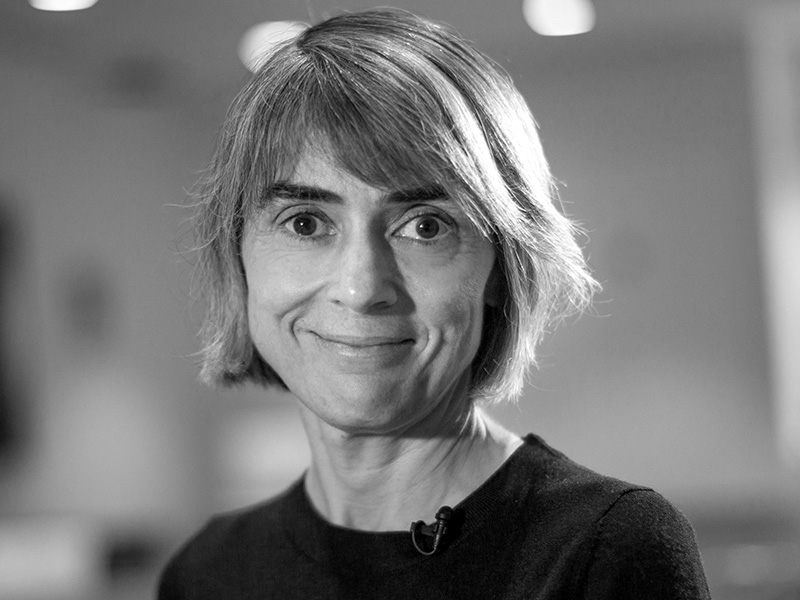We need to create more diverse paths into research and scientific innovation. Professor Dame Ottoline Leyser, Chief Executive of UK Research and Innovation, explains how industry clusters and a change of mindset could help.
What do you picture when someone mentions a chemist? Maybe you see someone like you working in a lab or office with your colleagues.
But what do people at the bus stop think? What would a secondary school student say? Do they see someone like them – or do they imagine an Einstein-like figure hidden away in a dark room with crazed hair and test tubes?
One of the most interesting messages from Professor Dame Ottoline Leyser’s Fuelling the Future: science, society and the research and innovation system talk on 29 September was the need to make sure science and technology are seen as viable careers for people throughout society.
Prof Dame Ottoline Leyser
You don’t need to be a genius to work in research and innovation. You don’t necessarily need to be a specialist, and you certainly don’t need to be hunched over a microscope with a jumble of figures and formulae on a board behind you. An array of different people, technical and non-technical, are needed to make the sector thrive.
The narrow pathway of talent
Part of Dame Ottoline’s job as Chief Executive of UK Research and Innovation (UKRI) is to improve access to these sectors and to make sure that great ideas aren’t lost due to daunting entry barriers.
‘It’s a huge challenge,’ she said. ‘A large part of the challenge is the narrow concept that we all have of what a researcher and innovator look like.’
Leyser spoke about the need to create diverse routes through the system rather than squeezing everyone through the same narrow path. ‘The assessment criteria we use for individuals have become narrower and narrower,’ she added. ‘Some of it, ironically, is to make the system fairer, but objectivity in creativity is a total pipe dream. You end up crushing creativity by narrowing the criteria.’
She noted that those with mixed careers – interwoven with varied experiences – are to be welcomed. ‘That’s nothing to do with compromising excellence,’ she said. ‘Real excellence comes in multiple forms.’
>> Would you like to attend more talks like this one? Check out our Events page.
Challenging times
However, Leyser also spoke of the need to level up the UK from a productivity perspective. One way to do this is through smart specialisation and industry clusters. She mentioned Lincoln as an area where this approach worked well. Lincoln is home to extensive agriculture and the multinational technology corporation Siemens. As such, it made sense to help make it a centre for agricultural robotics.
UKRI is investing heavily in research and innovation into Net Zero energy solutions.
As the largest public funder of research and innovation in the UK, UKRI has a major role to play in funding such industry clusters and intelligent innovation. It has funded more than 54,000 researchers and innovators, and UKRI grants have generated almost 900 spinouts since 2004.
These include Oxford Nanopore, a biotech company whose DNA sequencing technology is now valued at £2.5bn. It has also cast an eye on the future, including delivering more than £1bn in R&D relevant to Artificial Intelligence and in excess of £1bn towards Net Zero energy solutions.
Leyser noted that the UKRI’s goal is to embed research and innovation more broadly across society – for it to be ‘by the people and for the people, rather than the exclusive domain of the privileged few’.
It is a grand challenge, but such sentiments are certainly encouraging.













